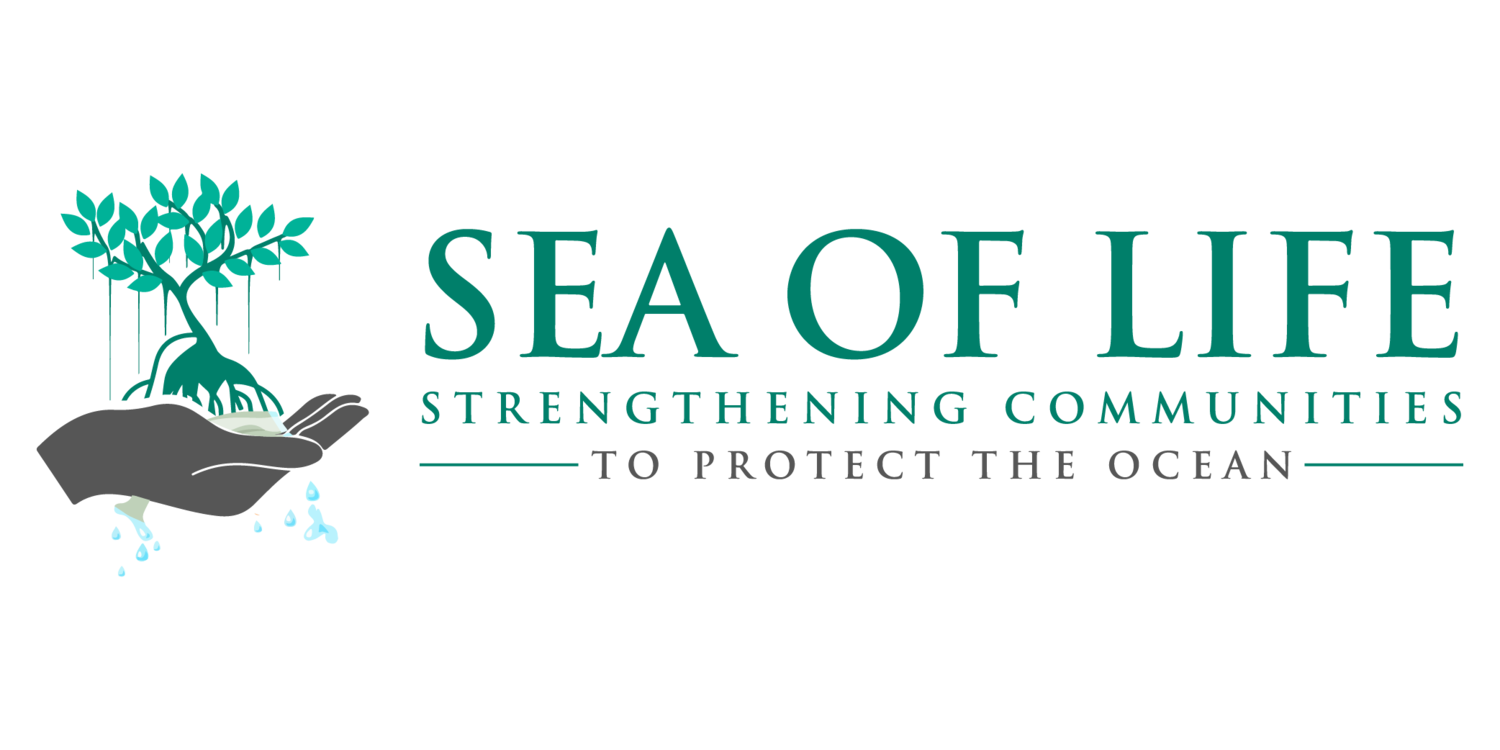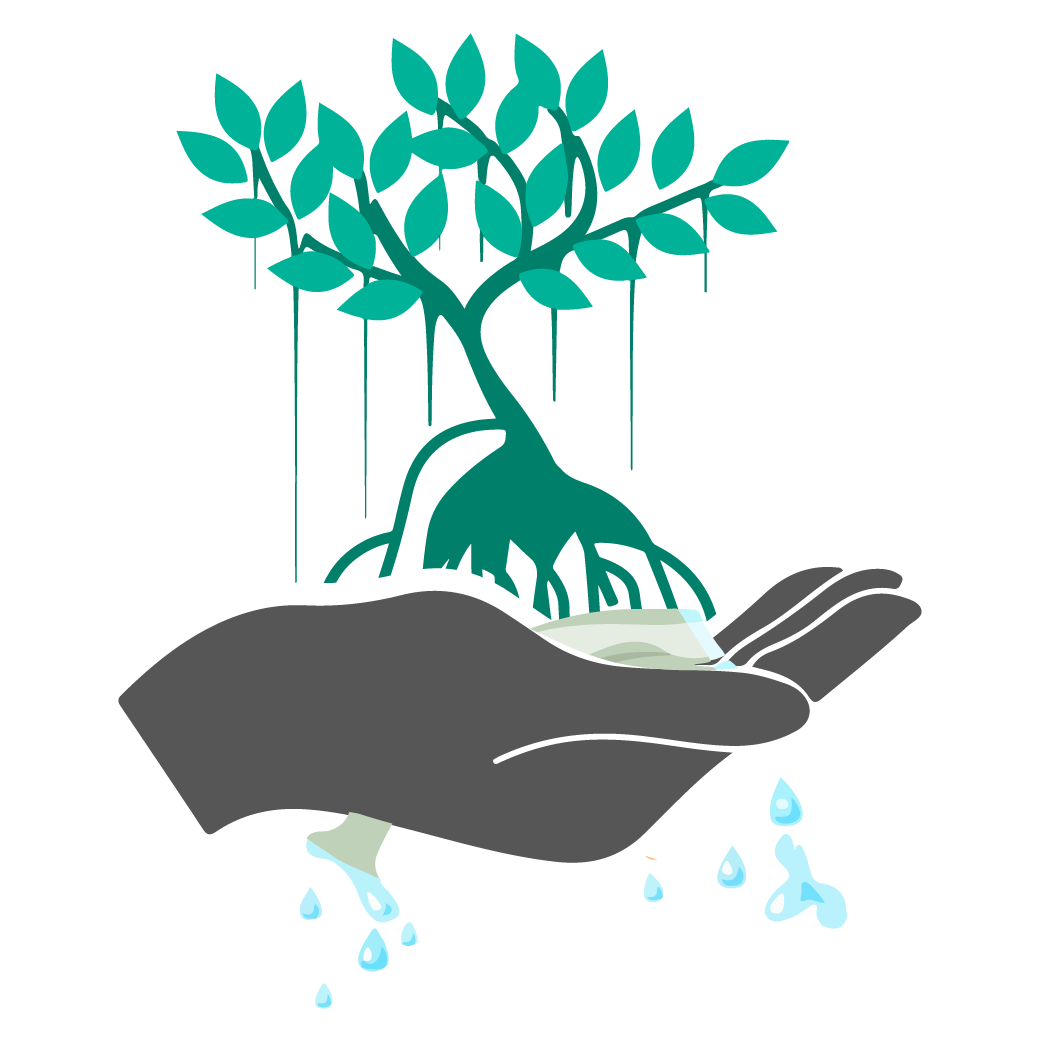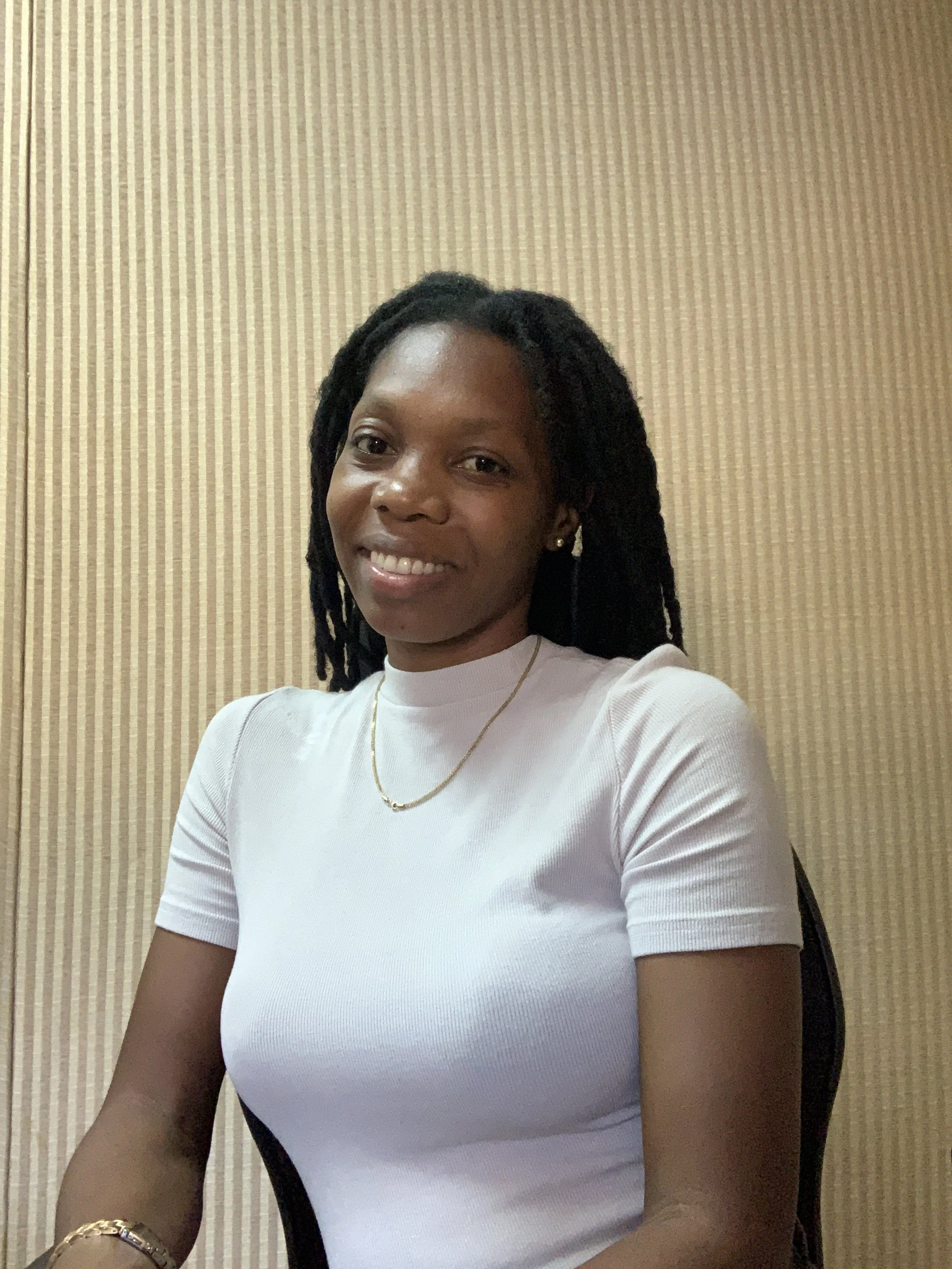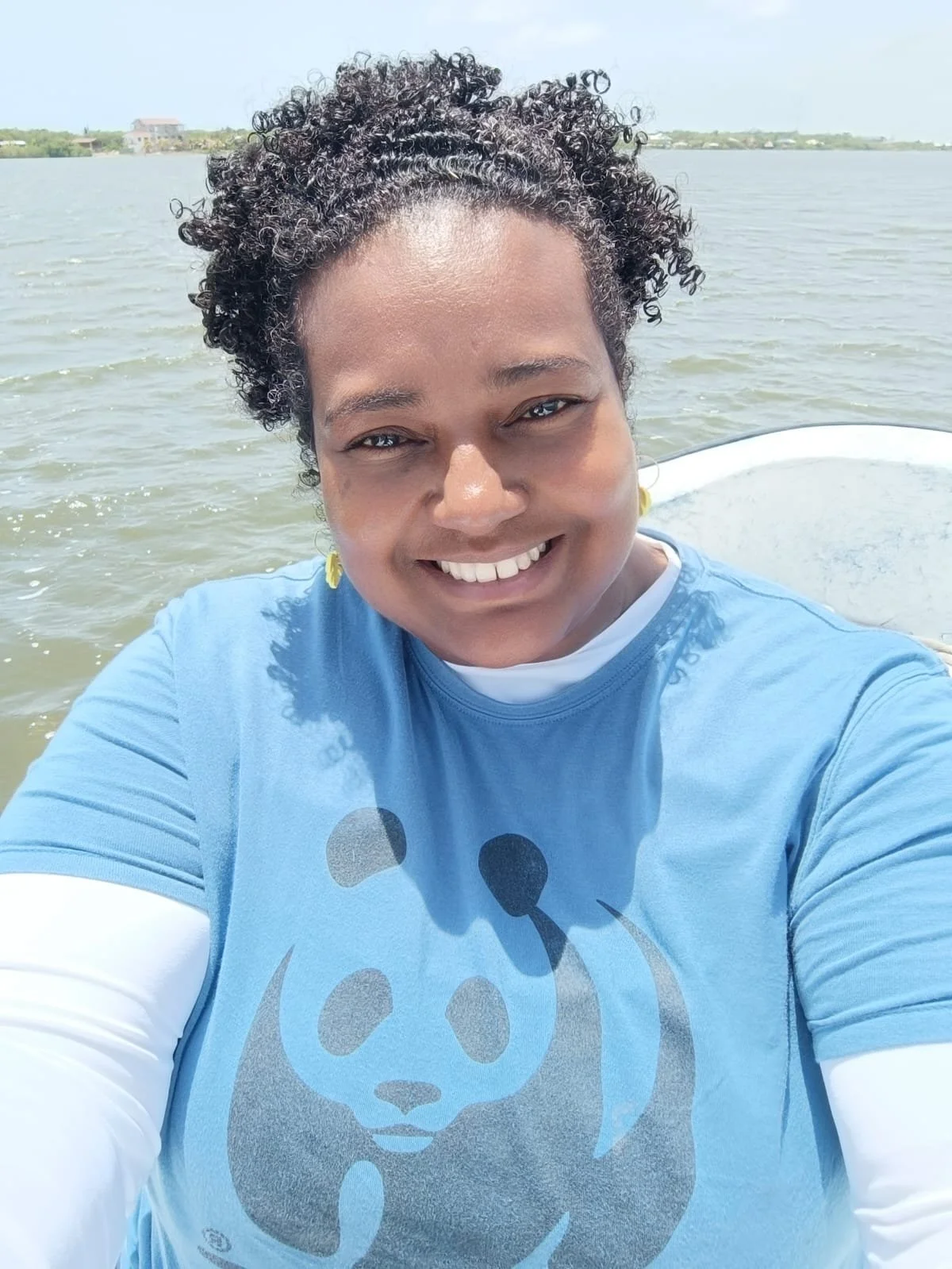A panel discussion featuring experts working on connecting conservation from inland terrestrial ecosystems to coral reefs in the sea. This panel was made possible by WWF and WCS and is moderated by Nicole Auil-Gomez.
Moderator, Nicole Auil Gomez For over 25 years, Nicole has dedicated her career to species and ecosystem research, protected areas creation and management, policy reform, and public outreach in her home country, Belize. Since 2016, she has served as the Country Director for the Wildlife Conservation Society in Belize. Her work supporting a dynamic local team at WCS includes backing policy development for sustainable fisheries and endangered species trade, conducting biodiversity assessments, marine protected area expansion and effective management, combatting wildlife trafficking, and most recently using nature-based solutions to adapt to our changing climate while building understanding of communities’ gender disparities and local traditions. Nicole started her career in 1996 establishing and promoting Antillean manatee species and habitat protection at the Coastal Zone Management Authority and Institute. From 2013 to 2015, Nicole was the Executive Director of the MPA-managing NGO Southern Environmental Association. Nicole holds the position of Mesoamerican Region Co-Chairperson for the IUCN SSC Sirenian Specialist Group. She is Belize’s first Whitley Award winner (2005), an alumna of the WWF/Russell E. Train Education for Nature Program (2001), and an Organization of American States fellow. She earned her Master of Science degree in Wildlife and Fisheries Management from Texas A&M University in 2003.
Kadisha Augustine has a background in social work and ten years practicing experience that are grounded in the process of community and human development. Her professional experiences have equipped her with the competence to interact with individuals from varying demographic and social backgrounds, an adeptness in analyzing the issues affecting them, as well as implementing measures relevant to their needs. She is cognizant of how integral the aspects of citizen participation and ownership are to the development process. Whereby her commitment is to development, she seeks to ensure that all measures are tried and exhausted to promote solutions to sustainably attain this goal. For those reasons, she is willing to actively advocate for individuals’ participation and benefit. Her yearn for development is attributed to her education from the University of the West Indies where she acquired a Master of Science in Development Studies (concentration in Social Development Policy). Her education at the University of Belize earned her a Bachelor of Science in Social Work, and has contributed to her success as a social worker.
Elma Kay Dr. Elma Kay is the first Managing Director of the Belize Maya Forest Trust, a non-governmental organization (NGO) entrusted with the stewardship and management of Belize’s second largest private protected area, the Belize Maya Forest. She is also co-founder of the University of Belize Environmental Research Institute where she served for a decade as Administrative Director and Science Director (Terrestrial). Dr. Kay combines 20 years of experience in research and teaching, conservation practice and policy, fundraising, mentorship, institutional building and organizational leadership. Dr. Kay has experience in stakeholder engagement and coalition building to achieve larger outcomes including the private protection of over a quarter million acres of Belize’s most threatened forests in the last four years.
Dr. Kay has served in numerous regional and national councils, Boards, and expert groups addressing protected areas policy and financing, REDD+, climate change and the implementation of international conventions such as the Convention on the International Trade in Endangered Species of Wild Fauna and Flora. She currently chairs the Belize Network of NGOs and the Maya Forest Corridor Trust, serves as Vice President of Friends for Conservation and Development and is a member of the Silk Grass Wildlife Reserve Board of Directors. She has and continues to mentor graduate students, young professionals, and community-based conservation groups.
Melanie McField is the founder and Director of the Healthy Reefs for Healthy People, leading a multi-institutional effort including >70 partner organizations working to better understand and conserve the Mesoamerican Reef. She developed the first “Report Card” of coral reef health (2008), now with eight Report Cards evaluating the Mesoamerican Reef. Melanie began her reef work in 1990 as a Peace Corps volunteer in Belize, followed by PhD in Marine Science from the University of South Florida, examining the influence of disturbance and management on reef community structure. She then worked for WWF and the Smithsonian Institution, with >60 research papers, numerous book chapters, technical and public-interest publications and has mentored 14 graduate students. She has received several awards, including the 2021 Conservation Award from ICRS and participated in numerous television news broadcasts and nature-based documentaries supporting reef conservation awareness.
Juliet Neal, bio coming soon
Dr. Amelia Wenger is a marine conservation scientist with over 13 years of expertise in coral reef ecology, water quality management, and ridge-to-reef conservation planning. She currently leads the Wildlife Conservation Society’s Water Pollution Program, where she co-develops strategic approaches to pollution assessment, monitoring, and management. Her work integrates scientific insights to guide conservation efforts across multiple countries, fostering cross-sector partnerships and addressing interconnected environmental challenges.
In addition to her role at WCS, Dr. Wenger is a Senior Research Fellow at the University of Queensland's School of the Environment and the Centre for Biodiversity and Conservation Science. Her research focuses on identifying management gaps and developing solutions for water pollution that benefit both nature and people. Throughout her career, she has worked in seven Indo-Pacific countries and has successfully secured funding for a range of impactful conservation projects. She is also a prolific researcher with over 40 peer-reviewed publications, including articles in top scientific journals like Nature and Conservation Letters.







